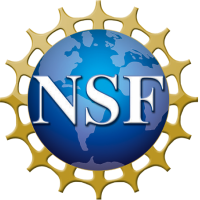The U.S. National Science Foundation has announced a new risk mitigation process, the Trusted Research Using Safeguards and Transparency (TRUST) framework, which will guide the agency in assessing grant proposals for potential national security risks. The revised procedures will help safeguard U.S. taxpayer investments in research and innovation while strengthening international collaboration.
Developed by the NSF Office of the Chief of Research Security Strategy and Policy (OCRSSP), the TRUST framework includes three branches. The first focuses on assessing active personnel appointments and positions, while the second focuses on identifying instances of noncompliance with disclosure and other requirements. The third branch — the inclusion of potential foreseeable national security considerations — represents a significant new effort for NSF. The framework is designed to avoid curtailing beneficial research activities due to institutions or individuals in the community being overly cautious, protect the agency’s core values of fairness and due process and maintain open lines of communication with the research community.
“This framework represents a major step in pivoting from a compliance culture to a research security culture,” said CRSSP Rebecca Keiser. “But we cannot continue to lead the world in science and innovation if we are fixated on achieving zero risk related to research security. We must be bold and invest in science here at home while continuing to encourage principled, mutually beneficial international collaboration. NSF will work collaboratively with the research community, industry, individual researchers and our partners in the U.S. government to identify, understand and address the potential risks so researchers can continue to do their work.”
The development of the framework was guided by requirements in the “CHIPS and Science Act of 2022” and the Fiscal Year 2023 Appropriations Report. The “CHIPS and Science Act of 2022” directs NSF to identify research areas that may involve access to “controlled unclassified or classified information” and “exercise due diligence in granting access.” The FY 2023 Appropriations Report directs NSF to collaborate with the Secretary of Defense and the Director of National Intelligence to compile and maintain a list of all NSF-funded open-source research capabilities that are known or suspected to have an impact on foreign military operations.
NSF also commissioned a report by JASON, an independent scientific advisory group that provides consulting services to the U.S. government on matters of defense, science and technology. The key findings of the Safeguarding the Research Enterprise report included an assertion that “openness and transparency in fundamental research promote scientific discovery, which improves national security” and recommended specific steps NSF could take to identify sensitive areas of research and processes NSF might use to enhance security in those areas of concern.
The TRUST process will be rolled out in three phases. Beginning in FY 2025, the process will be piloted on quantum-related proposals. The pilot will collect data and assess key metrics, monitor the impact on NSF directorates and build and evaluate NSF’s ability to review the potential national security applications of NSF-funded technology. In the second phase, lessons learned from the pilot phase will be implemented and the process will be expanded to include other key “CHIPS and Science Act of 2022″technology areas. In phase 3, NSF will scale up the review process to include all key technology areas and/or the priorities of the NSF Technology, Innovation and Partnerships Directorate’s priorities.
>>> Read full article>>>
Copyright for syndicated content belongs to the linked Source : Nsf.gov – https://new.nsf.gov/news/nsf-enhances-research-security-new-trust-proposal










